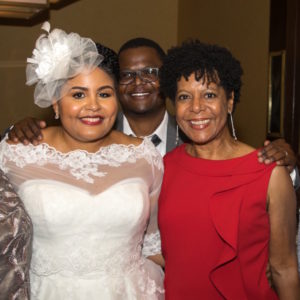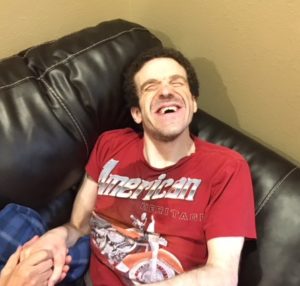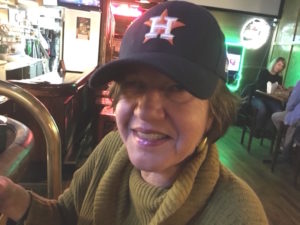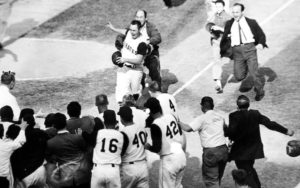Guest post: Aunty Maggy restores her spirits
November 8, 2017 • 8 Comments • Posted in careers/jobs for people who are blind, guest blog, memoir writing, teaching memoir, writing promptsWhen I assigned “Spirits” as a writing prompt over the Halloween weekend, I expected the writers in my memoir classes to come back with stories of living in houses that were haunted, going to psychics, reading Tarot Cards, seeing ghosts or visits from the “other side.” Instead, I heard essays about team spirit, kindred spirits, vodka, Christmas spirit, you name it. This one, called “My Spirits Restored,” was particularly moving, and the writer has generously agreed to let us publish it here.
by Maggy Fouché
In 1994, three years after we got married, my husband and I became homeowners. Claude and I had acquired a collection of artworks while we were both single, and our new home transformed into an art gallery. Paintings and carvings of all sizes and colors filled every room in the house. Fortunately, our taste in art was similar, with only a few exceptions. Pieces I didn’t like ended up in the unfinished basement. Throughout our life together we acquired more art from travels abroad and visits to local art fairs and galleries.

Djenane and her husband Jacob with their Aunty Maggy
When Claude died, I had to sell my house. The paintings became a casualty of the real estate agent’s dictates. “Put all that away,” she said. “Prospective homebuyers don’t want to see any of your personal effects.”
Everything got wrapped in brown paper and put in the basement, and I prepared to transition from a three-bedroom house to something smaller. Trips to Goodwill and the city’s recycling center on Goose Island became a routine part of my life, and the art collection became just another thing to get rid of.
Unfortunately, my attempts to sell art on line went nowhere. My home’s antiseptic makeover worked, though, and the house was sold.
On moving day all the paintings got put in various boxes simply labeled “Art.” Without knowing which box contained the pieces I really liked, I put them all into the storage unit in my new apartment complex. I’d dispose of them later.
My opportunity came just a few months ago when my niece Djenane was getting married. “Aunty Maggy,” she said one day, “Jacob and I need some art to decorate our new home. I love the place, but the walls are so bare!” I gave her one of the paintings I had tried to sell on Craigslist. She was thrilled.
So was I.
I told her I had more pieces and she could come and take whatever she wanted. To prepare for her visit, I spent a weekend unpacking all those boxes marked”Art.” Removing the brown paper wrapping and seeing my favorite pictures emerge was like being reunited with old friends. Something inside me was being restored.

Now Maggy looks at her favorite paintings every day.
I’d discarded much more than I thought in those four years of purging, and now I found something I didn’t even know I’d lost. I separated the pictures I wanted to keep and showed Djenane the rest. She took two paintings and four carvings – Hurray! A major dent in the inventory.
Now my focus was on reuniting with my old friends and making up for the years of neglect. I took advantage of a 60% off frame sale from Michael’s to get two of them properly mounted and framed. Then I called my handyman to come help me hang them in the living room.
Now, as I read, write, or just sit in my new art gallery, I feel their warm embrace. “Hi, Maggy!” the paintings seem to say. “It’s good to be back.”



